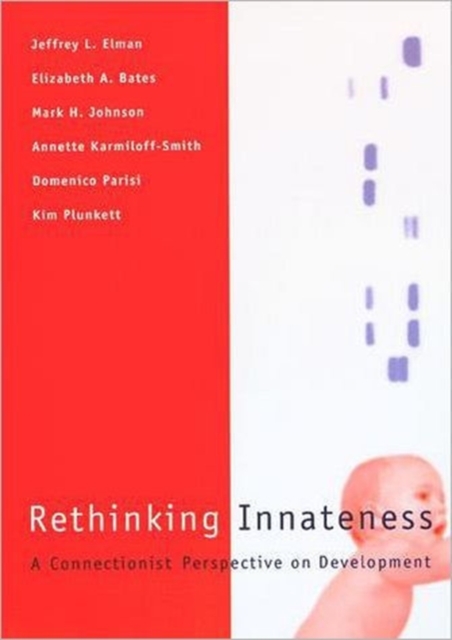
Rethinking Innateness : A Connectionist Perspective on Development Paperback / softback
by Jeffrey (University of California, San Diego) Elman, Elizabeth Bates, Mark H. (Birkbeck College, University of London) Johnson, Annette, PhD (Birkbeck College) Karmiloff-Smith, Domenico Parisi, Kim (Oxford Univ) Plunkett
Part of the Neural Network Modeling and Connectionism series
Paperback / softback
Description
Rethinking Innateness asks the question, "What does it really mean to say that a behavior is innate?" The authors describe a new framework in which interactions, occurring at all levels, give rise to emergent forms and behaviors.
These outcomes often may be highly constrained and universal, yet are not themselves directly contained in the genes in any domain-specific way. One of the key contributions of Rethinking Innateness is a taxonomy of ways in which a behavior can be innate.
These include constraints at the level of representation, architecture, and timing; typically, behaviors arise through the interaction of constraints at several of these levels.The ideas are explored through dynamic models inspired by a new kind of "developmental connectionism," a marriage of connectionist models and developmental neurobiology, forming a new theoretical framework for the study of behavioral development.
While relying heavily on the conceptual and computational tools provided by connectionism, Rethinking Innateness also identifies ways in which these tools need to be enriched by closer attention to biology.
Information
-
Item not Available
- Format:Paperback / softback
- Pages:468 pages
- Publisher:MIT Press Ltd
- Publication Date:23/01/1998
- Category:
- ISBN:9780262550307
Information
-
Item not Available
- Format:Paperback / softback
- Pages:468 pages
- Publisher:MIT Press Ltd
- Publication Date:23/01/1998
- Category:
- ISBN:9780262550307









